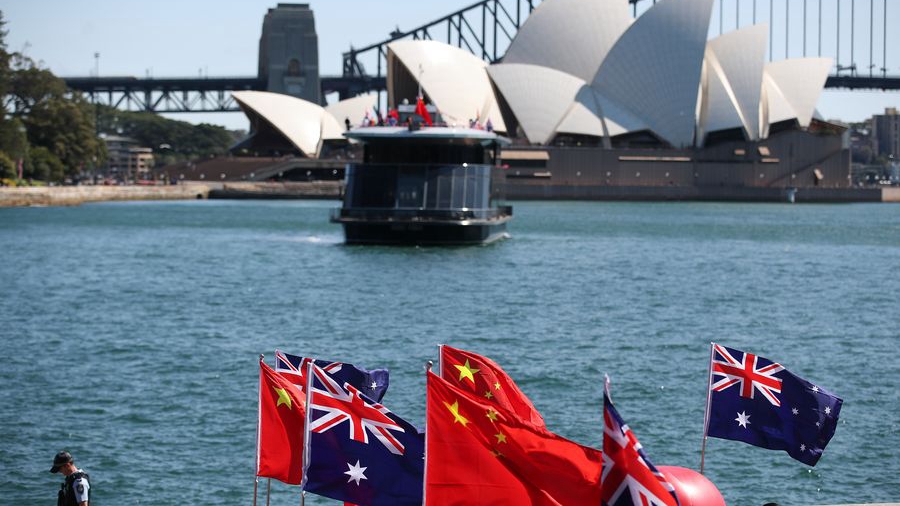Sino-Australian trade ties deliver major benefits


Amid calls for greater cooperation between the two countries, latest analysis shows that Australia's trade with China has significantly benefited Australian households.
Addressing a news briefing on Friday, Foreign Ministry spokesman Lin Jian said that "China's development is an opportunity, not a challenge for Australia," as Beijing called for increased cooperation with Australia.
Highlighting a report jointly published by the Australia China Business Council and Bankwest Curtin Economics Centre, an independent economic and social research organization, Lin said facts and statistics mentioned in the report reveal the enormous benefits that trade with China has brought for Australians and the win-win nature of China-Australia trade ties.
The report, titled Australia's Trade and Economic Relationship with China, estimated that Australia's trade with China increased the average Australian household's disposable income by an average of AU$2,600 ($1,706) in the financial year 2022-23, which equals 4.6 percent of the average household's disposable income. It noted that the two-way trade with China in 2022-23 created about 595,600 jobs, accounting for 4.2 percent of the total employment in Australia.
Lin said that strong economic ties will also help keep global industrial and supply chains stable and fully functional, with the links contributing to the sustained economic recovery of the two countries, the region and the wider world.
"China stands ready to work with Australia to take the 10th anniversary of the comprehensive strategic partnership between the two countries as a new beginning, implement the important common understandings between the leaders of the two countries and the deliverables of Premier Li Qiang's June visit to Australia, explore new cooperation areas, make the pie of mutually beneficial cooperation bigger, and deliver more benefits to the two peoples," Lin added.
The trading relationship also provides affordable goods and services to Australians, according to the report, with imports from China ranging from electronics to everyday consumer items. This accessibility has helped maintain a lower cost of living for Australians. Households in the country would be paying 4.2 percent more for the same consumption items without China as a major import partner.
Chen Xiaochen, executive deputy director of the Centre for Asia Pacific Studies at East China Normal University, said the latest findings come at a time of warming relations but it is also important to recognize the undercurrents of skepticism driven by ideological concerns.
"Some people believe that the China-Australia economic and trade relationship is not important and have security anxieties. This report addresses these concerns," Chen said.
"The Australian business community uses this report to visually and quantitatively demonstrate the importance of China-Australia trade to the Australian public. Sometimes, China-Australia trade is like air and water, unnoticed but deeply integrated in Australia's economic development and improvement of living standards. This report brings these unnoticed aspects to the forefront, which is its value," he said.
There is also no "security-economy dichotomy" as some Australians think, Chen added. He urged Australian policymakers to reflect on the country's culture of security anxiety and ideology-first mentality, pointing out that Australia has excessively adopted a United States-first mindset, which needs to be reconsidered.

































